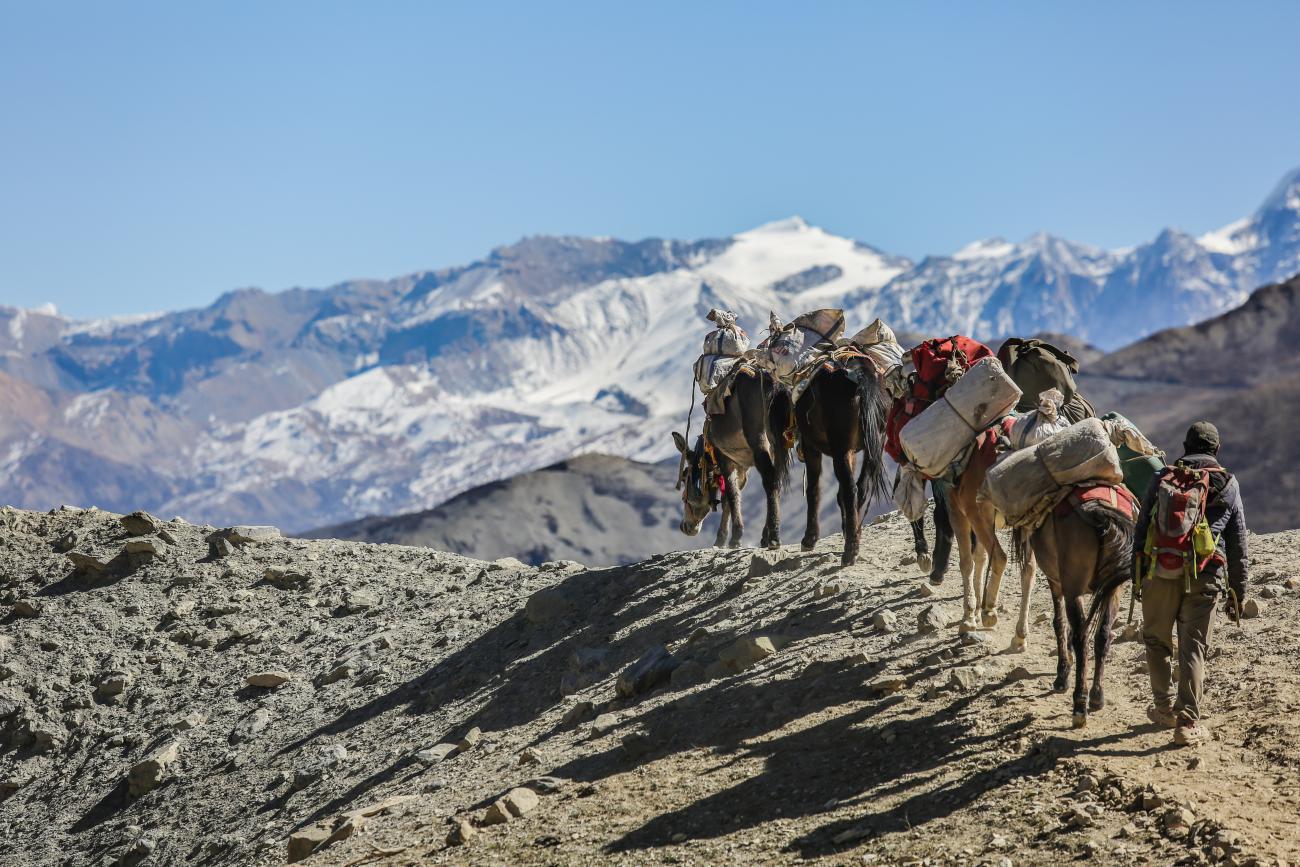Moving Mountains: Towards a cross-boundary collaboration

United Nations leaders in five South Asian countries have joined forces to strengthen collaboration on climate change, disaster response, emergency preparedness, and economic and social development.
The highest-ranking representative of the UN Development System at the country level- the Resident Coordinators from Bangladesh, Bhutan, India, Nepal and Pakistan came together to work on a series of joint activities to build a transboundary partnership in the lead up to the International Mountain Day on 11 December. The awareness-raising and knowledge sharing initiative aims to address common problems related to global warming, including biodiversity loss, increased glacial melting, and less predictable water availability—all of which will impact livelihoods and well-being in the Hindu Kush Himalaya region and its mountain range which runs through these five countries as well as China, Myanmar and Afghanistan.
Home to 210 million people, the region is also known as the Third Pole, since it holds the world’s greatest volume of snow cover, glaciers, and permafrost outside the polar caps. Even if the world meets the goal set out in the Paris Agreement of limiting global warming to 1.5 degrees by 2030, the Hindu Kush Himalaya region, which is already severely impacted by climate change, is projected to warm by five-degree Celsius by 2100 compared to pre-industrial levels, according to an assessment carried out by the International Centre for Integrated Mountain Development (ICIMOD), an intergovernmental knowledge and learning centre based in Nepal.
“This initiative will harmonise UN efforts as it relates to climate action and disaster response and emergency preparedness. The aim is to also accelerate the UN’s ambition for the SDGs, advocating for SDG2, SDG11 and SDG13,” said David McLachlan-Karr, Regional Director, UN Development Coordination Office for Asia-Pacific.
“It will continue to engage young people from across nations to advocate for the future they want in a climate change-challenged world. Such an initiative will provide Resident Coordinators, United Nations country teams and other development partners with consistent support on inter-connected issues that have cascading impacts across borders.”
To ensure that the voices of young people are reflected in the Transboundary Partnership the offices of the Resident Coordinators organized a Youth Panel Discussion which gave youth representatives from the five countries the platform to share their views on how climate change is impacting young people’s lives across the region.
According to Rida Rashid, a 19-year-old climate activist from Pakistan, the Regional Youth Panel Discussion provided a key opportunity to engage with and build a network of young people for future initiatives at a national and transboundary level.
In another recent panel discussion, the five Resident Coordinators highlighted how, in line with the objectives of the Transboundary Partnership, their country teams are supporting their respective host countries meet the challenge of the triple planetary crisis of climate change, pollution, and biodiversity loss. From building resilience to combating risks from climate change to disaster risk reduction, the five country teams are scaling up their support to turn their climate ambitions into concrete actions.
Opening the discussion, Sonam Wangchuk, founding-director of the Students' Educational and Cultural Movement of Ladakh emphasized the importance including women in these efforts fight climate change and find innovative solutions to mitigate natural disasters across the Hindu Kush Himalaya region.
Karla Robin Hershey, Resident Coordinator, UN Bhutan also underlined the need to ensure that climate mitigation and adaptation measures were inclusive and transboundary in nature.
“Bhutan and its neighbours are vulnerable to the impacts of climate change. The risk and damage associated with climate change transcends borders. That requires us to find transboundary solutions and mechanisms to address the needs and the challenges ahead.”
For the communities in the mountains, the impact of climate change is already being felt. To bring stories from these vulnerable mountain communities and visibility to the transboundary partnership, a video compilation comprising of five stories from five countries was released on International Mountain Day through social media platforms of the five UN country offices. The video features vloggers and mountaineers highlighting how climate change has impacted the lives of people living in the mountains.
As well as rallying support and raising awareness of climate related threats across the region, the five Resident Coordinators also aim to provide strong leadership to facilitate greater knowledge sharing between the UN country teams and strengthen coordination with development partners. Through this enhanced regional cooperation, the UN country teams can continue to scale-up their evidence-based responses to climate change across the ‘Third Pole’ region.
As part of the initiative, the UN country teams pledge to develop and strengthen efforts the achieve the Sustainable Development Goals (SDGs). The SDGs are a set of 17 objectives adopted by UN-member countries in 2015 that aim to help build peace and prosperity and address environmental issues across the globe. Each SDG addresses a specific topic. The priorities for coordination under the Transboundary Initiative include those to combat hunger, build sustainable cities and communities, address climate change, and ensure responsible production and consumption.
The initiative will provide Resident Coordinators, United Nations country teams and other development partners with consistent support on inter-connected issues that have cascading impacts across borders.
This story was jointly written by UN Bhutan, UN Nepal, UN Pakistan, UN Bangladesh and UN India. Editorial support by UN DCO.













